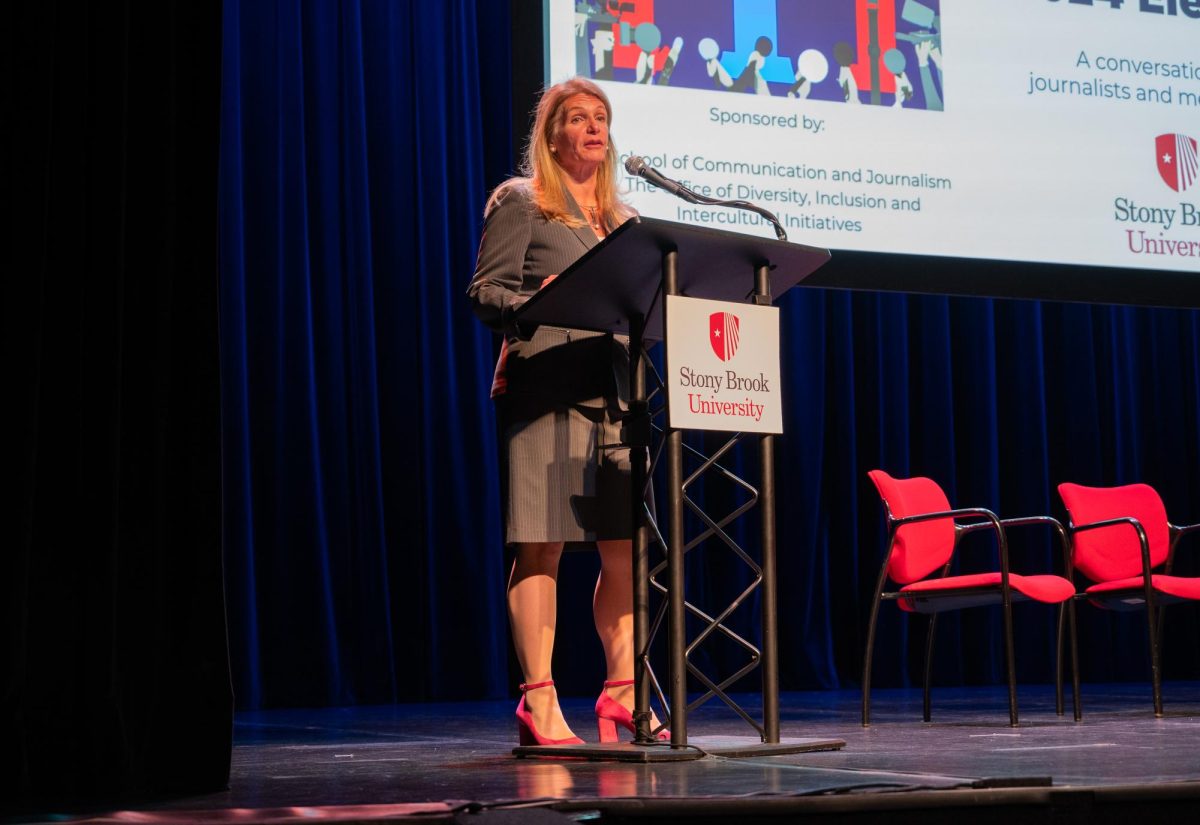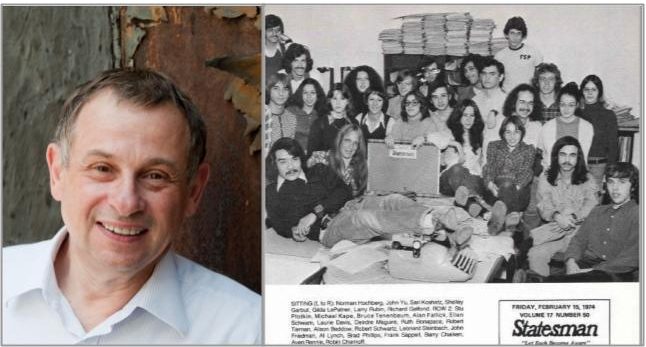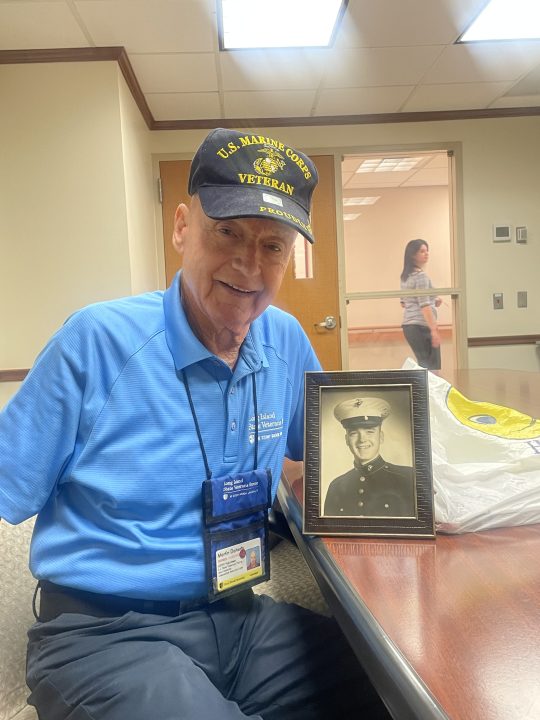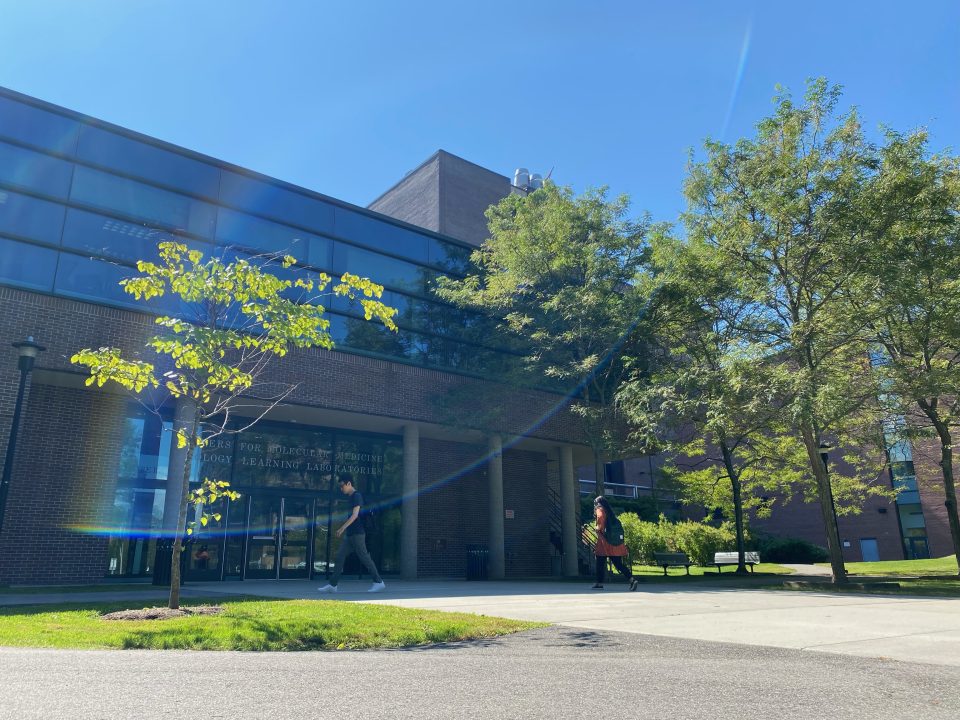
Asian Americans have often been called the model minority; they have been stereotyped as intelligent, hardworking and successful. But for Julie Huang, an associate professor of marketing at Stony Brook University, it is a false perception rather than a reality.
During the 2021-2022 school year, the COVID-19 pandemic ravaged the sense of community on Stony Brook’s campus. Huang wanted to bring that sense of community back, and one day she received an email asking if anyone would be interested in forming a mentorship program for Asian American students to help them achieve their goals.
Three years later, the Asian American Pacific Islander (AAPI) Mentorship Network remains steadfast in its mission to help AAPI students propel themselves forward in their academic, career or personal goals through mentorship with faculty members in the careers that the students want to pursue.
This year-long mentorship program represents the latest initiative in helping Asian American students succeed at Stony Brook and in their careers. One in 10 Asian Americans live in poverty and Asian American students have on average $4,000 more in unmet financial need than the average low-income student at a public four-year university. With so many Asian Americans facing poverty, Huang and the AAPI Mentorship Network are doing their part to better educate and prepare the next generation of Asian Americans.
Huang hopes the interpersonal relationship between mentors and mentees can allow mentees to use their mentors as a resource in all areas of their lives.
“It’s about being a sounding board and being just there for the other person,” Huang said. “A source of support a person can turn to for discipline, personal or psychological needs.”
Ashley Mowreader is a student success reporter for Inside Higher Education, a publication dedicated to providing insight into higher education for policymakers. Mowreader believes cultural institutions can provide a sense of belonging and help keep minority students engaged in a setting predominantly white.
“When a student feels as though they are represented equally in an institution, they are more likely to stay academically engaged,” Mowreader said. “Cultural institutions and multicultural spaces create a micro-culture within an institution and highlight some of the underrepresented student bodies and groups on campus.”
The expectations from others for Asian Americans to succeed on their own weigh heavily on Christina Wong, a freshman political science and sustainability studies double major. She joined the AAPI Mentorship Network at the start of the fall 2023 semester to find someone who could help her make her transition from high school to college as smooth as possible. Throughout her experience, Wong has learned how to ask for help and now knows that it’s okay to not have all the answers.
Wong said that meeting with her mentor Thien Nguyen August, a senior staff assistant in the Office of Admissions, helped her learn more about life at college.
“AAPI Mentorship provided me with an avenue of support I could rely on to help me understand more of the intricacies of college life,” Wong said. “While personal decisions and self-growth that arose from speaking with Thien and analyzing my experiences aided me in learning how to be vulnerable around some of my friends.”
Mentees and mentors like Wong and August meet monthly virtually on Zoom or in-person to gauge the progress of mentees and how mentors can best help them where they are at. Unlike Wong, many mentees slowly drop this form of communication with their mentors as the year progresses, which puzzles Huang.
“Since we recruit at the beginning of the year, a lot of students are gung ho about everything, but things get busy and they kinda drop off,” Huang said. “One of the things that we’ve been trying to do is how to keep mentees engaged because the mentors are willing.”
Ziyao Tian, a sociologist at the Pew Research Center, discovered the lack of engagement could stem from the model minority myth. The assumption that Asian Americans are successful and financially well-off adds pressure onto Asian Americans to find success themselves without any help. Tian is one of the co-authors of “The Hardships and Dreams of Asian Americans Living In Poverty,” a research study examining how the model minority myth affects Asian Americans in poverty. For Tian, the model minority notion does more harm than good.
“We heard from the focus groups that there are assumptions that Asians don’t need help, so it’s something that affects them in their daily lives,” Tian said. “Some of them recollect their experiences as children growing up or share stories as parents that their kids are well-off because they have wealthy parents. These assumptions that Asians don’t need help hurts them in multiple ways.”
Asian Americans’ fear of asking for help does not stem from pride, but rather the worry of burden. In Tian’s research, he found that United States-born participants didn’t want to add another problem to the pile for their parents to solve.
“It could be a shared feeling for those growing up in a disadvantaged background, not wanting to be a burden,” Tian said. “Another thing is being an immigrant or a child of an immigrant, you may have a sense that family is who you should support.”
Wong’s story resembles the first-generation Asian American story for many. Her parents came from Fujian, Fuzhou to the U.S. and worked multiple jobs to provide her opportunities that they didn’t have. She is the first in her family to attend college, but this accomplishment comes with the expectation to succeed.
Wong is not alone in this feeling. In another one of Tian’s studies, titled “Asian Americans and the ‘model minority’ stereotype,” she discovered that 54% of U.S.-born Asians who say the model minority myth is harmful also believe the American Dream is out of reach for them.
“I do feel some pressure in succeeding on a personal level since there is a feeling of, ‘Whoop, there goes another few thousand dollars down the drain every semester,’” Wong said.
For Wong, her immigrant parents wanted her to go to school to become a physician assistant or pursue a well-paying career in the technology sector, but she realized through conversations with her mentor, August, that it is never too late to pivot.
“Hearing about her [August] experiences really encouraged me to come to the epiphany that it’s never too late to break ties off and go off into another direction,” Wong said. “Sort of what I did with going from biomedical engineering to political science.”
The AAPI Mentorship helps fill in gaps in Asian Americans’ understanding of community and business. During her research, Tian discovered the community and financial knowledge that Asian Americans are looking for is one that the educational system largely can’t provide.
“We do hear from U.S.-born Asians that less formal education like how to network, how to invest, how to build financial freedom,” Tian said. “Those are the types of things that they hope they knew more or earlier to seek opportunities.”
Huang sees the mentorship network as an opportunity to get the most out of it not just for students, but for mentors as well.
“Maybe they’re not close with their family [or] professors, but they are able to go to you because you are literally their mentors so they feel okay asking,” Huang said. “I have a mentee that has financial questions, I ask around if anyone knows resources. I think mentors making a difference in the lives of our mentees is very rewarding.”



















